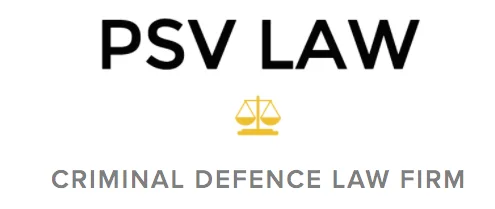Your case matters to you. All cases, big or small, matter to us.
Call (647) 967-5787 for a direct, 30 minute cost-free consult today. 24/7.
As part of our commitment to ensuring access-to-justice in the legal profession, we at PSV LAW offer interest-free payment plans and reduced fees are available on a case-by-case basis for low-income individuals.
False allegations of child pornography can be detrimental to your employment, social life, reputation and immigration standing. Ensuring you have strong legal representation is vital to beating false allegations of child pornography.
Often, an accused is not even aware that an offence has been committed, nor do they realize the seriousness of the charges. Child pornography offences are also subject to mandatory minimum sentences.
Depending on the charge, the crown will have to prove the following essential elements of the offence beyond a reasonable doubt in order to secure at a conviction:
Making
- identity of accused
- date and time of incident
- jurisdiction (incl. region and province)
- the accused did the act of making, printing, publishing or possessing for the purpose of publishing materials
- the accused specifically intended to perform the impugned act
- the materials were child pornography
- the accused knew or was wilfully blind to the materials being child pornographic
Making available or Distribution
- identity of accused
- date and time of incident
- jurisdiction (incl. region and province)
- that the material in question constituted child pornography;
- that the child pornography was actually made available by the accused (make available) or actually distributed by the accused (distribute); and
- that the accused had the intent to make child pornography available to others.
Possession
- identity of accused
- date and time of incident
- jurisdiction (incl. region and province)
- the accused possessed images, videos or texts
- the images, videos or texts were child pornographic
Accessing
- identity of accused
- date and time of incident
- jurisdiction (incl. region and province)
- the accused obtained access to materials, either through a computer or otherwise
- the materials accessed were child pornographic
- the accused knew or was wilfully blind to the nature of the materials
Knowledge
Where the accused has viewed the materials, he becomes imbued with the knowledge of the files' contents. Knowledge can be inferred on the basis of circumstantial evidence. Evidence can include links on the desktop of the computer. Courts should look at indicators such as "ownership, access, and usage of the computers on which the electronic file is stored". Also considering the ways files can get on a computer without the user's knowledge, for example from previous owner, another user, accidental download based on misleading file names, downloaded while web-browsing, pop-up sites, and spyware.
Inadvertent or Accidental Downloading
It is not necessary for the crown to establish intentional downloading to establish possession. However, where there is evidence of intentional downloading, the Crown can rely on the presumption that "one intends the consequences of one's actions". In order to rely upon inadvertence the defence must adduce some evidence supporting this, rather than simply speculating.
Control
Control over a computer file refers to the "power or authority over the item, whether exercised or not."Control can be inferred by the same evidence from which knowledge can be inferred.
Deleted files
The fact that a file is deleted does not alter or nullify possession of the file. However, the ability to make the inference of knowledge of deleted files is less than files readily visible to the user. Where a file has been deleted but not overwritten, the Crown should establish that the accused knew that the files were still accessible and knew how to access them.
History of the Offence
Section 163.1 was enacted in 1993 (S.C. 1993, c. 46, s. 2) to add offences related to child pornography.
On July 23, 2002, the offence of accessing child pornography was added as well as the forfeiture provisions.
On July 20, 2005, Bill C-2 amended s.163.1 to include mandatory minimum penalties and change the definition of child pornography for written and audio materials.
On November 1, 2005, in response to the decision of R v Sharpe, s. 163.1(6) was amended to remove the common law public good defence and add the a defence on the basis that the acts "(1) had a legitimate purpose related to the administration of justice or to science, medicine, education or art; and (2) did not pose undue risk of harm to persons under the age of eighteen."
Mandatory Minimums Increased
On August 9, 2012, this section was amended to increase the penalties as follows:
- Making: Summary 90 days increased to 6 months
- Distribution: Summary 90 days increased to 6 months
- Possession: Indictable 45 days increased to 6 months / Summary 14 days increased to 90 days
- Accessing: Indictable 45 days increased to 6 months / Summary 14 days increased to 90 days
These are just some of the important reasons why securing an acquittal is crucial.
We are conscientious toward the nature of your issues and know that discretion and confidentiality are key to protecting individuals who are not likely criminals but may have merely made a mistake. We will do what is necessary to defend against these charges, employing our network to help conduct forensic analysis on your computer and ascertaining what was accessed so that we can put the best defence forward.









